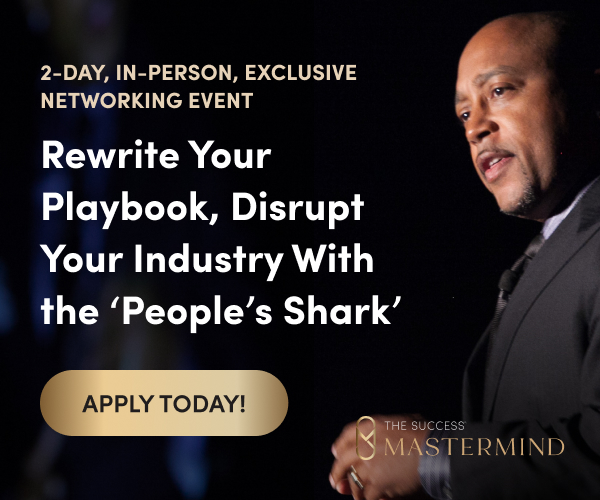Most of us have heard Ron Howard’s laugh. Think back to just about any episode of Happy Days when the Fonz says something embarrassing to Howard’s character, teenage Richie Cunningham, who shuffles his feet and laughs with a breathy, nervous naiveté. Or recall the old black-and-white episodes of The Andy Griffith Show, when Howard played Sheriff Andy Taylor’s enthusiastic son Opie, throwing his auburn head back in laughter at the fumbling Don Knotts.
Ron Howard’s laugh is familiar; it’s easy, uninhibited, and even a little bit self-effacing; it makes us laugh right along with him. Today, as an Oscar-winning director and co-chairman of Imagine Entertainment, Howard directs movies that stick in the public’s imagination just as much as his infectious smile. He credits his directing approach, and much of the joy he still finds in filmmaking, to his early days as a young actor on The Andy Griffith Show. “That was a very unique environment,” Howard says. “It was incredibly productive, but it was also fun. And Andy Griffith, to be honest, set a tremendous example without ever lecturing or offering a word of advice. Basically, he demonstrated a creative integrity about the work…. It did not mean that people had to wander around with a furrowed brow, chain smoking and kicking furniture, in order to bring something that was really personal and creatively exciting to the public.”
Howard worked on the set of The Andy Griffith Show from the age of 6 to 14. His experiences solidified into a foundation for his directing today. “That’s the kind of environment that I try to create, and it’s the way I work,” he says. “So I’m not a person that flourishes in an environment of conflict. I’ve learned to cope with hot situations, but it’s not something that I find stimulating.”
A Sense of Fairness
In Hollywood, conflict would seem par for the course. It’s not known as the land of nice guys. It’s known as the land of egos. The land of divas. And sometimes, the land of money fi rst and people last. But Howard has maintained a reputation for being one of the nicest guys in the business.
“He’s wise,” Happy Days co-star and longtime friend Henry Winkler has said. “He was wise when I first met him. I think he’s an old soul. There is this wonderful sense of fairness in Ron.”
People who work with Howard notice that fairness. And it’s intentional. “As a director, I try to create an environment where people feel they can creatively flourish, where they can excel, and that creates a lot of confidence and an ongoing dialogue and a kind of creative excitement that I can, as the director, really work with and help shape and focus,” he says. “But nobody’s operating out of fear or anxiety as much as they are a kind of creative excitement and a belief that, in a business that often throws up roadblocks, as many of those as possible are going to be cleared away.”
Howard says he strives to treat people with respect. This approach allows him the freedom to put his foot down from time to time without causing uproar. “People know that I’m a good listener and that I’m eager to include people’s creative ideas when I believe they’re in harmony with the needs of the project. So knowing all of that, I find that people are willing to accept a no from me more readily because they also understand that I’m very eager to say yes and include their ideas.”
That’s right; the nice guy says no. His filmography illustrates his ability to bring real human drama, even darkness, to life on screen. His portfolio, which includes some of the most popular films of the past 25 years, is a mix of comedy, drama and suspense. He won an Academy Award for Best Director for A Beautiful Mind, a drama starring Russell Crowe; Emmys for his role as producer on the sitcom Arrested Development and the miniseries From the Earth to the Moon; and a Golden Globe for his acting on Happy Days in 1974.
Over the course of his directing career, Howard has worked with stellar actors, such as Glenn Close, Russell Crowe, Robert Duvall, Tom Hanks, Steve Martin, Robert De Niro, and even the incomparable Bette Davis.
The Uncomfortable Conversation
Howard directed his last made-for-TV movie, Skyward, in 1980. Bette Davis was the star, and in an interview for the Encore Movie Channel series The Directors, Howard says Davis liked the script. But she did not like the idea of answering to a 26-year-old director. “She kept referring to me as Mr. Howard,” he says.
He spoke to her on the phone before the shooting started. “I said, ‘Miss Davis, please call me Ron.’ And she said, ‘No, I’ll call you Mr. Howard until I decide whether I like you or not.’ And then she hung up.”
Howard spent a few sleepless nights before the first day on set, worrying he wouldn’t be a match for the formidable Miss Davis. His father, actor Rance Howard, told him what all actors want, legendary or not, is to feel like the director supports them and is making sure they give their best performance.
One day, in the middle of a scene, Davis stopped rehearsing and said that Howard’s direction wouldn’t work. “She said it really loud so the crew could hear,” Howard says. “And I said, ‘Well, Miss Davis, just try it.’ ” So, after a few final objections, she tried it. And it worked.
Davis knew it and told Howard so. That evening, when filming had wrapped for the day, Howard recalls saying his customary goodbyes to the cast, including Davis. “And she said, ‘OK, Ron, see you tomorrow.’ She literally patted me on the ass and went off to her limousine.”
Thanks to those early experiences, Howard learned to tackle conflict in working relationships head-on. “When you do hit a roadblock with an individual, I almost always find that it can be worked through via just applying logic to the situation,” he says. “Even though I don’t like confrontations, I find that when you sense that trouble is brewing, you try to grasp it, you try to understand it, [even] if you have to ask a few questions of other people to try to get some sense of what’s going on. As soon as you think you understand, at all, go to the source, and don’t be afraid to have the uncomfortable conversation. And if there is a difference of opinion, work it out with respect.”
But when it comes to the final cut, Howard says, “It’s not a democracy.”
“Once in a while, there has to be a parting of the ways. And, you know, I’ve let people go. But not a lot. I haven’t had to. I think people know I would and that I do. I think I’m viewed as fair but probably not a pushover.”
The Noise of a Thousand Crises
Despite the conflict inherent in a collaborative process, Howard says he finds a great deal of fun in the planning of a film. “That’s not solitary work, usually,” he says. “Those are meetings, those are conversations. You’re out scouting locations, you’re in rehearsals with actors and writers, and you’re huddled around an art table with a bunch of storyboard artists or special effects teams. I find that to be fun. It’s stimulating. There are usually a lot of laughs, and often you really end the day feeling that you’ve achieved something, you’ve solved something; you’ve elevated your project.”
But behind all that fun are some daily best practices that set Howard up for success. “Well, I’m a fairly disorganized person in life, and I’m extremely organized when I’m working. I realize that my practice of making shot lists is very, very thorough, so that in the morning by 7:45, I’ve got my list of from 23 to 56 setups that we have to do. And I’m starting to talk to the assistant director and the cinematographer about the order in which we should shoot them. It’s a fluid thing; it changes all day long, but I have a plan.
“I never did that in my life,” he says with a laugh. “I’m sad to say it was only about three years ago that I realized, Wow, I could make a shot list for my daily life. And I do now and it does help. I get a lot more done,” he says, laughing again.
This practice of planning, of getting focused on what’s important, has helped Howard develop a process for dealing with problems as they arise in the course of a workday. “You know those tense, tense days when you’re spinning a lot of plates, something’s going horribly wrong and you are struggling with it and it’s just miserable and shitty? I learned a long time ago that if I would just take a moment and sit down and say, ‘All right, this is miserable, but what is my job today? I don’t like much of what’s going on right now, but right now, this moment, what are my tasks? And if I can identify the most important task, what is it?’ And then just go do it. Whether it’s trying to keep an actor who’s concerned about the script from withdrawing from the project or whether it’s trying to work with the studio to solve a budget problem, or whether it’s to try to creatively deal with the fact that you just lost a location that you need to shoot in the next day. Whatever it is that feels crummy and hopeless, if you can just address it and say, ‘This is all I can do today; this is what I’m supposed to do today.’ Whatever it is, it helps me to identify that and do that and not let the noise of a thousand crises overwhelm me.”
Of course, solving a problem isn’t always as simple as doing the next thing. Sometimes, it takes extended effort; sometimes it calls on us to go above and beyond. Howard, while planning for Apollo 13, had the opportunity to spend a lot of time with NASA engineers and astronauts talking about the real Apollo 13 crisis that required everyone involved to work heroically for days, trying to save the lives of the astronauts in space.
“I had the chance to interview many, many people, both from Mission Control and also the astronauts, [Jim] Lovell and [Fred] Haise,” he says. “And they kept talking about ‘work the problem.’ ”
Howard incorporated that line into the Apollo 13 script. “The reason that they use that, the reason that’s a kind of a mantra for them—it’s a little bit like my thing, What’s my job today? It’s basically—as Jim Lovell explained to me—that as a test pilot, you’re trained that you could crash your plane and die on one of these test flights. That happens. But if you crash, you’d better crash flipping switches and trying to figure it out. Because every once in a while somebody figures it out 10 feet from the ground. So that notion of clear out the bullshit and work the problem is a simple mantra that makes a lot of sense to me.
“So then, part of what you have to do is not avoid the problems. I’m not one of those people that want all the secrets, conflicts and impediments kept from me. My team knows that I like to know what everybody’s thinking and what the problems are, because I want to be part of ‘working the problem.’ ”
The Center of a Creative Swirl
Howard tries to instill that work ethic and sense of support on set, clearing away the obstacles for his team on every film. But, he says, “As a director, I don’t ever have anybody doing that for me.” Working with partner Brian Grazer at Imagine Entertainment has changed that. “What I have with Brian, who’s a world-class producer and a great friend,” Howard says, “is somebody who can do that for me, and does.”
Their latest project, The Dilemma starring Vince Vaughn, is the first Grazer-written script Howard has worked on since the hit movie Splash in 1984. Howard knew it was a winner for him when he and Grazer were at a dinner party and Grazer brought up the premise, which is infidelity. “You know, if you began to understand that somebody you cared about was cheating on someone else you cared about, what would you do? How would you tell them? What would the fallout be?” Howard explains. “And I could see at this one dinner party that people were completely energized by the conversation. It wasn’t a bummer. It yielded laughs, you know, people bared their feelings. It really made the dinner incredibly lively, so I felt like it’s a rare thing that can be genuinely entertaining and stimulate that kind of response.”
In addition to “giving people something to kick around and chew on, on the way home,” Howard seeks out scripts that are often edgy, sometimes funny, grounded in reality and framed with elements of “relatable, honest drama.”
“I think that as an actor I was correctly typecast,” he says of his early nice-guy roles. “I never wanted that for myself as a filmmaker. And so I’ve always been really focused on stretching my creative muscles and risk-taking on film subjects and styles that, perhaps, I haven’t had a lot of experience with before but that I’m interested in.”
His latest stretch was a pair of short films for FunnyOrDie.com to help support the creation of a Consumer Financial Protection Agency. One of the films reunited all the Saturday Night Live presidential characters in one scene, a feat others have tried to accomplish and failed. His next big challenge may be The Dark Tower series: three films and a television series based on Stephen King’s novels. “While I bring my own sensibility, my own creative energy and focus and point of view to every single moment and every conversation, I also enjoy the collaborative process and benefit from it,” Howard says. “And I find that the thing that thrills me the most is being at the center of a creative swirl that exists when you’re facing the problems and issues of making a film or a television show at every stage.”
Earning His Place at the Table
Howard stays in the creative swirl even after leaving the studio each day. “I go home and start thinking about other ideas. For me, playtime [means]—instead of building a ship in a bottle—I’m usually noodling around with something I just read in an article or a notion that just popped into my head or a weird dream I had. And I’m making notes and daydreaming about stories.”
He admits that he’s not a hobbyist, that although he plays guitar and draws a bit, this filmmaking obsession takes up most of his time. “It’s my job. But I love it, and it’s my hobby too. It’s my passion.
“If it’s not a passion, I think you can’t do it well. In my mind—maybe I just know this for myself—if it ever became manufacturing for me, and not creating, then I wouldn’t look forward to each day anymore. And I think I’d get out because it’s too challenging otherwise.”
Howard’s wife Cheryl, his high-school sweetheart, and their four children, daughters Bryce, 28, Jocelyn and Paige, 24, and son Reed, 22, bring some balance to his life. “I love simple stuff,” Howard says with a smile. “Taking hikes with [Cheryl] is something I really look forward to.” The Howards moved their family from L.A. to Connecticut in 1985.
“We still love to go to movies,” he says. “We go on dates to movies; we don’t screen them at the house. You know, we go out and hit the multiplex.” And yes, he gets stopped by fans. A lot. But he shrugs it off, saying, “It’s fine. I’m out and about all the time.”
An unusual habit for someone of his stature, for someone whose face most of us have seen since we were kids. “I acknowledge the difficulties of it. But I’ve also always been very grateful for the opportunities that I’ve had and that I’ve been able to create for myself,” he says. “It’s a business where you have to keep re-earning your place at the table.”
This is part of what makes Howard the nice guy: He has some humility.
“I think that, in some way, for me, it requires a little humility because you have to understand that, no matter how much people might know your name when you walk down the street, there are brilliant people who really want your job; they want to do what you’re doing. And if you don’t love the process and aren’t willing to commit to it, then you should get out, you should step aside.”
Howard isn’t stepping aside anytime soon. Despite the challenges, he’s learned to face the conflicts head-on and come out laughing. The surprising thing is that everyone else is usually laughing too.
Visit Video.SUCCESS.com to see Ron Howard discuss how emotional risk affects his creative process and how he continues to put himself out there in the face of critics.









